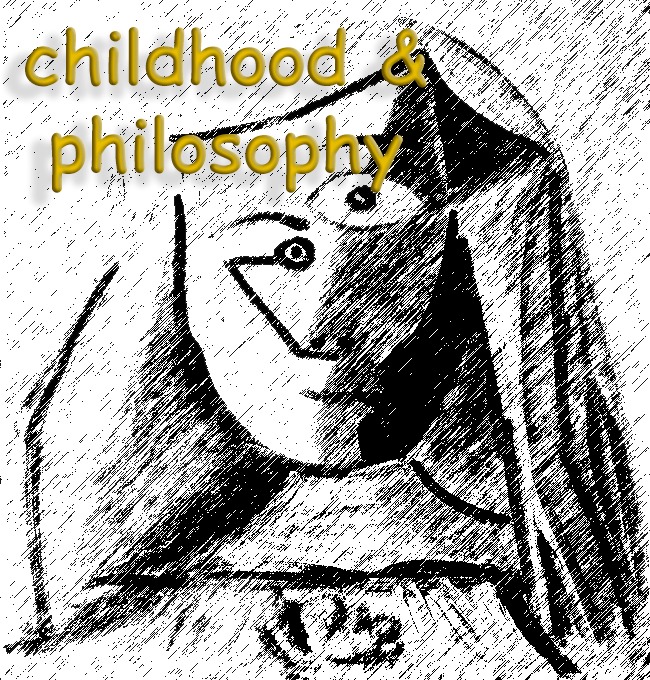what does the invitation to philosophize invite?
DOI:
https://doi.org/10.12957/childphilo.2021.54168Keywords:
invitation, consummation, philosophize, public schoolAbstract
In the call from papers from childhood & philosophy we hear an invitation to philosophize. But what does such an invitation mean? In what ways does an invitation or (re) invitation to philosophize encourage us to suspension our accepted meanings and empower us to sustain this challenge? These are the questions of two teachers who have, first, accepted the prior invitation to philosophize with children, and have now accepted the invitation to think and write together about that experience. This essay was prompted by two questions posed by the children with whom we philosophize: In writing it, we have experienced other ways of thinking and living educational practice, and, through our encounters with our students, find ourselves challenged to live in more inventive and therefore more childlike ways within the framework of the public school, here understood in the sense of scholé (Masschelein; Simmons, 2013). In order to reflect on the two questions, we set off from the concept of consummation (Heidegger, 1987), and we engage in dialogue with both a pedagogy of the question (Freire; Faundez, 1985), and the concept of equality of intelligence (Rancière, 2005), in order to open a pathway of thought that addresses them.
Downloads
References
Carrol, L. Alice: as aventuras de Alice no País das Maravilhas. Tradução de Maria Luiza X. de A. Borges. Rio de Janeiro: Jorge Zahar Editor Ltda. 2010.
Costa-Carvalho, Magda. “Caminhos para impensar a filosofia” in Filosofia para Crianças: a (im)possibilidade de lhe chamar outras coisas. Rio de Janeiro: NEFI edições (coleção ensaios), p. 233-244 (2020).
Gomes, V. C. A. D. Dialogar, conversar e experienciar o filosofar na escola pública: encontros e desencontros. Rio de Janeiro: NEFI. Coleção Teses e Dissertações, 6, 2017.
Haynes, J.; Murris, K. “The Provocation of an Epistemological Shift in Teacher Education trhough Philosophy with Children”, in Vansieleghem, N; Kennedy, D. Philosophy for Children in Transition – problems and prospects. Oxford: Wiley-Blackwell, p. 117-136 (2012).
Heidegger, Martin. Carta sobre o Humanismo. Lisboa: Guimarães Editores, 1987.
Freire, P.; Faundez, A. Por uma Pedagogia da Pergunta. Rio de Janeiro: RJ, Paz e Terra, 1985.
Kohan, W. Infância. Entre Educação e Filosofia. Belo Horizonte: Autêntica, 2005.
Kohan, W. “Formação inventiva de professores em tempos de pandemia: o que um louco lúcido nos convida a pensar e escrever?” in Mnemosine Vol.16, nº1, p. 53-66 (2020)
Masschelein, J; Simmons, M. Em defesa da Escola: uma questão pública. Belo Horizonte: Autêntica, 2013.
Nascimento, W. F. do. “Orientando uma educação antirracista” in Entre apostas e heranças: contornos africanos e afro-brasileiros na educação e no ensino de filosofia no Brasil. Rio de Janeiro: NEFI edições (coleção ensaios), p. 65-72 (2020).
Rancière, Jacques. O mestre ignorante: cinco lições sobre a emancipação intelectual. Belo Horizonte: Autêntica. 2005.
Vieira, P.A. “Intersubjetividade: um olhar sobre a comunidade de investigação filosófica”, in childhood & philosophy, Rio de Janeiro, v. 15, jun. 2019, p. 243-262.




